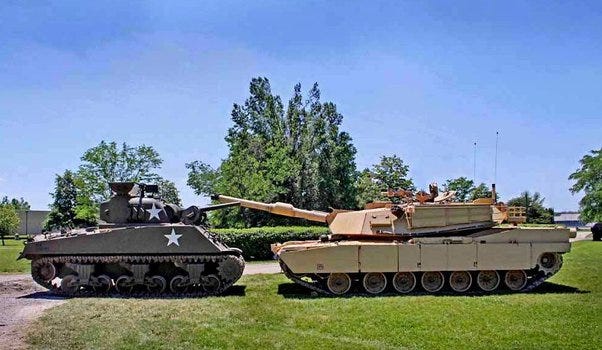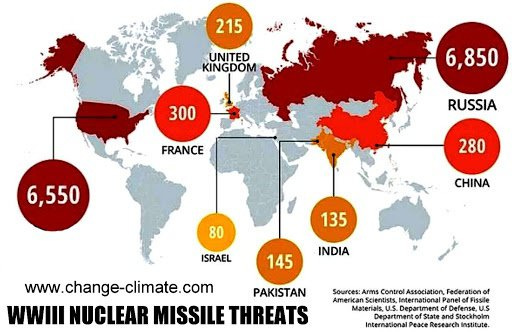- hansel's Newsletter
- Posts
- What do you think will happen in World War III?
What do you think will happen in World War III?
Understand History
It’s so hard to say really because WW3 could happen tomorrow, or in a year, or a decade, or 4 millennia.
WW3 in the year 3287 would be slightly different from a 2024 WW3.
Since technology is impossible to predict (if you could predict it, you’d be inventing it) let’s go with a more recent period.

Photo by UX Gun on Unsplash
Let’s say WW3 takes place between 2024 and 2050, shall we?
So I think there are some broad assumptions we can make starting with largely comparing WW3 to the previous World Wars, specifically WW2.
1: It won’t be as deadly or as large as WW2

This sounds strange, right? I mean how could it be smaller? There are more people, more guns, and better technology. Certainly, it would have to be a larger war.
I don’t think so.
In WW2 we fought a war of attrition. This meant wartime production was key to winning. You had to be able to produce enough tanks, bullets, and guns to replace your losses and outproduce the bad guys.
Tanks were trucks with tons of steel and a big gun. Rifles were wooden and simple. Soldiers were given basic green outfits, a basic kit, a rifle, and some bullets.
It was all made to be cheap, reliable, and easy to produce.
And the war reflected this production ability. Nations threw themselves at each other until 1 side ran out of everything. Germany lost because there were no more men, they were low on oil, and their enemy overwhelmed them. This made WW2 particularly deadly. Winning battle never mattered- overwhelming your enemy by inflicting more casualties than they could replace is what mattered.
Compare that to today.
The Abrams tank has acid-proof armor, stabilization software, complex optics, and a jet engine. We need literal rocket scientists to make this thing. We could never scale up production to meet demand because it takes years of education to qualify to work at an Abrams factory.
Then you get to the jet fighters and even the basic kit for soldiers. I mean every single infantryman has an advanced rifle, complex optics, Kevlar equipment, and other high-tech stuff. Even their gloves are high-end specialized combat gloves.
The ability to produce any of this in scale is questionable at best.
The ability to afford all this is even more dubious. A single Abrams is 8 million dollars. A single soldier not including pay cost 15k a year. How the heck do you pay for all this?
In WW2 we expanded the US military to include 16 million servicemen. There is no way we could even touch that number today. There is no way we could produce enough gear for 16 million soldiers and even if we could there is no way we could afford it.
In the long-ago days of the Middle Ages wars were simple. If you lost a battle the war was done. You could not afford to magically raise another army and even if you could it would take years to produce thousands of more sets of armor and weapons.
In WW2 you could replace losses easily. When the USSR lost almost its entire military in the opening days of the German invasion they could easily just draft millions more and hand them all rifles.
I think WW3 may strike a balance between these extremes. Given the complexity and cost of the equipment involved, we cannot afford to just keep throwing men and tanks at the bad guys. Losses will mean something and be irreplaceable to a certain degree.
This means the war cannot be as deadly or as large as WW2. It may compare in raw size but won’t come close in terms of per-capita size.
2: It will involve cyber-warfare

Photo by Towfiqu Barbhuiya on Unsplash
There is no question that the next battlefield is cyberspace. The damage a group of hackers can cause is insane. They could
Shut down national GPS systems, haunting trucking, trade, and even basic air travel
Shutdown power grids
Crash markets or delete bank account information
Cause overloads and explosions
Ever heard of Stuxnet? It’s terrifying.
Years ago Iran was enriching uranium at a uranium enrichment facility. This is a complex process that involves uranium being spun around in large centrifuges. The US and Israel wanted this stop but were not willing to go to war.
So Stuxnet, a computer virus, was engineered.
First, it spread all over the world infecting millions of computers. It was searching for a specific type of computer and if it was in a normal computer type it wouldn’t do anything.
It was looking for a specific type of Iranian computer used in uranium enrichment facilities.
After spreading all over the globe it found its way into the enrichment facilities computers.
Then Stuxnet just sat there- recording data of the facility during normal operation.
After a few weeks of this, it began to alter the rotation of the centrifuges. This caused them to break and malfunction and ruined the uranium.
While it was doing this it spat out the data of normal operation it had recorded the last few weeks. To those in the control room, things seemed normal- in reality, though things were far from normal.
This is a computer virus affecting the real world in physically significant ways. Stuxnet was years ago and today our abilities in cyberspace are miles ahead of where they were when Stux was built.
Militaries will love this. Just destroy your enemy’s economy and infrastructure with computer viruses. It’s cheap, effective, and simple compared to physical warfare. Disable an aircraft carrier, fire missiles into space, or disrupt communications nationwide.
This is the next battleground for nations- cyberspace.
3. It won't be ideological

Photo by Johnny Cohen on Unsplash
WW2 was an ideological war in many ways. It pitted democracy and socialism against Fascism and the war was fought along those lines.
WW3 was also supposed to be ideological- putting socialism against capitalism.
Today though such a war is unlikely. Firstly there aren’t many socialists left. While China claims to be socialist they are most capitalist, preferring trade and commerce to communal farming and communism.
There just aren’t lines in the sand over ideology worldwide. It’s far more complex today.
When it comes to combatants I think we will likely see the US square off against China. Both sides will claim to fight for freedom, sovereignty, and their people. In reality, it will be a war for the throne.
China will aim to accomplish its long-held ambition of becoming the next superpower while the US tries to retain its position at the top.
The war will be fought in the Pacific, Korea, Japan, and maybe even on the Indian border.
4. It won’t go nuclear

Photo by Frédéric Paulussen on Unsplash

I can’t imagine WW3 becoming a nuclear war no matter what happens.
The second you launch nukes it’s over you lose. Your entire population dies, the earth is devastated for generations, and your infrastructure is in ruins.
Even if 1 side is losing badly a terrible humiliation would be preferable to destruction and both sides know this.
I think there is a fear that WW3 will be a nuclear war but I don’t see it.
You can help me out by buying me a book!
That’s it for today. Thank you for reading., please let me know what you think about this in the comment section. Your one comment motivates me to continue my passion and research more to do better every day.
Have a beautiful day!
- Hansel Sapkota